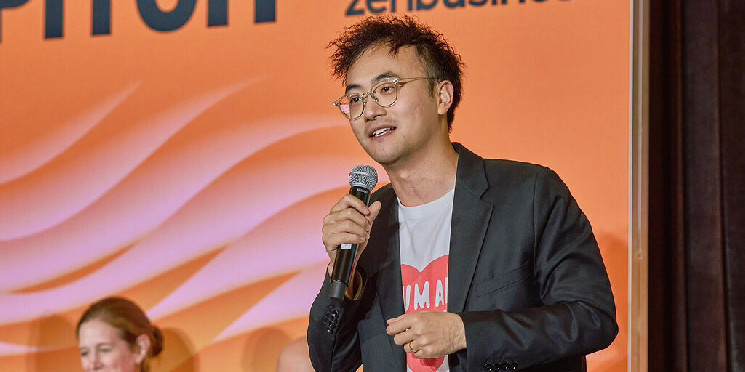“We want to create FLock as a marketplace or platform for communities,” company founder and CEO Jiahao Sun said. “Instead of us creating models for them, we provide the infrastructure so everyone can compete with their model.
“Whoever wins will get the best incentive from business use cases or stakeholders paying for the use case,” Sun added.
Typically, AI models require massive amounts of data to function, and the original creators of that data are rarely compensated—a sticking point that has led to massive lawsuits and labor union strikes. Decentralized AI aims to address concerns about privacy, data storage, and access, Sun said.
“What I'm thinking about decentralized AI is, we are contributing to the last mile of data, privacy, and user control,” Sun said. “That's where I think FLock steps in so people can leverage those last mile data to fine-tune even better models.
“It doesn't necessarily mean that our model is way bigger compared to [OpenAI, Google, or Microsoft], but it will definitely mean that the amount of quality data is bigger because we are getting it directly from users,” he said.
Based in London and launched in 2022, FLock aims to advance AI with the decentralization provide by blockchain technology. Still in its testnet phase, FLock said it will eventually distribute rewards to users who stake its FML tokens on the Ethereum layer-two network BASE. Users can also engage with the FLock.io network as training nodes, validators, or delegators.
“The staking program is not a traditional financial staking mechanism—it is FLock’s own mechanism to govern training authentication,” Sun said. “Good players keep getting FMLs to participate in more and new tasks, while bad players who cheat or fake training results will be slashed out of FML tokens and, hence, exit the training [or] participation [in the] FLock system.”
Sun said while FLock’s AI platform is designed to be open to anyone, people in certain regions, including the United States, are prohibited from participating in the FML staking rewards program due to government regulations.
Joining FLock in the beta rollout is blockchain infrastructure company Foundry, which is also active in the Bitcoin mining space. “The cloud collaboration with Foundry leverages their deep infrastructure to validate and support the models,” Sun explained.
With AI becoming more ubiquitous, alternatives to centralized corporate AI are gaining support. Early this month, ShapeShift founder Erik Voorhees debuted his latest project, a decentralized AI model called Venice AI.
“Once a company has your information, you can never trust it’s gone, ever,” he said, noting that some government regulations require companies to retain customer information. “People should assume that everything they write to OpenAI is going to them and that they have it forever.”
“The only way to resolve that is by using a service where the information does not go to a central repository at all in the first place,” Voorhees added. “That's what we tried to build.”
In March, three leading decentralized AI projects–Fetch.ai, SingularityNET, and Ocean Protocol—announced their intention to merge and create the world's largest decentralized AI ecosystem called Superintelligence Alliance.
In addition to merging their efforts and respective communities earlier this month, the Superintelligence Alliance also announced the merging of their native tokens–FET, AGIX, and OCEAN–into the new ASI token.
“The objective is to make ASI the network of AI true decentralization of technological development and deployment,” Fetch.AI CEO and Chairman of the Alliance, Humayun Sheikh, told Decrypt.
Edited by Ryan Ozawa.
 decrypt.co
decrypt.co
